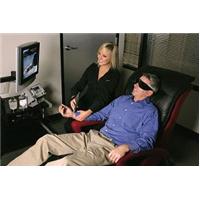British women are struggling to bring balance to their lives, with only one in four (27%) saying they successfully juggle the demands of work, family and a social life. But over-40s are the most likely to get it right, with almost one in three saying (31%) saying they strike the right balance and more than half (57%) say they sometimes get it right.
Four out of five (84%) women say there are times when they are trying to keep too many balls in the air and a similar number (81%) fear their frenetic lifestyles could lead to health problems in the future.
This worrying picture of women’s health and emotional wellbeing has emerged in polls conducted for Kira, one of the nation’s most trusted names in women’s health and herbal supplements.
The One Poll surveys of 1,000 women — half aged between 20 and 40 and half aged 40 to 60 — found that older women are the best when it comes to resisting the pressure to be perfect, with two out of five (41%) saying it was never an issue, compared to less than a third (29%) of 20 to 40-year-olds
Older women are also less likely to look enviously at their friends’ lives, with almost two out of five (38%) saying this was never an issue, compared to less than a quarter (23%) of the 20 to 40-year-olds.
They are also less likely to fall prey to pressure from social media with only one in 13 (8%) saying online activity made them feel they were being short-changed by life, compared to almost one in five (18%) of the younger women.
Body confidence as we age
Body confidence also grows with age, with seven out of ten (69%) of the older women saying they had no interest in cosmetic surgery or procedures, compared to six out of ten (59%) of the younger group. The 20 to 40 group was twice as likely to want a boob job or new nose, 18% compared to 8% and 10% versus 5%.
However, anxiety about the future was a factor across the board, with almost nine out of ten (89%) women in both age groups saying they worried about what lay ahead. Money and debt was a cause for concern for one in three (32%) and two out of five (45%) admitted they were struggling financially.
Dr Catherine Hood, a women’s health specialist and an advisor to Kira notes: “It’s reassuring that experience brings a little more stability and contentment, but these surveys show women are balancing different demands throughout their lives.
She adds: “The demands of our bodies change too, which is why bone health becomes much more of an issue as we age. Top up vitamins can be helpful during periods of stress or when busy lifestyles makes it difficult to exercise and eat healthily.
“But I would advise any woman over 40 to take special care to protect their bone health with a high calcium supplement such as Kira Body Balance.”
How to find balance, bone health and avoid hormonal blips
Kira Hormonal Balance is a one-a-day food supplement which is great for women on the go as it does what it says on the pack, and helps keep your hormones in balance.
It contains a combination of essential B vitamins, which are important for hormonal metabolism and balance. Vitamins B2, B6, B12, vitamin C and folic acid also help reduce tiredness and fatigue, while vitamins B1, B6, B12, folic acid and pantothenic acid may help to maintain normal mental performance and normal psychological function.


![aerobicexercise [100x100].jpg](https://www.elixirnews.com/assets_c/2012/07/aerobicexercise%20%5B100x100%5D-thumb-100x99-651.jpg)


